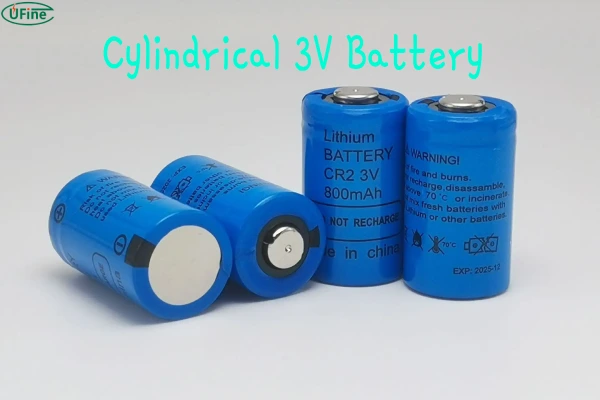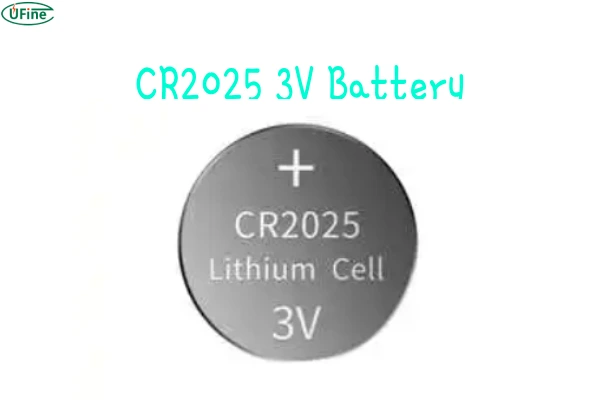When it comes to powering small electronic devices, 3 volt batteries play an important role. These compact batteries are designed for low-drain devices but pack enough power to be reliable in everyday applications. Whether you’re using them in your remote control, car key fob, or even in a smartwatch, understanding the types, uses, and longevity of 3 volt batteries can save you time, effort, and money.
Let’s dive into the world of 3 volt batteries to explore their chemistry, common types, key parameters, and how to choose the right one for your needs.
Part 1. Understanding 3 volt battery
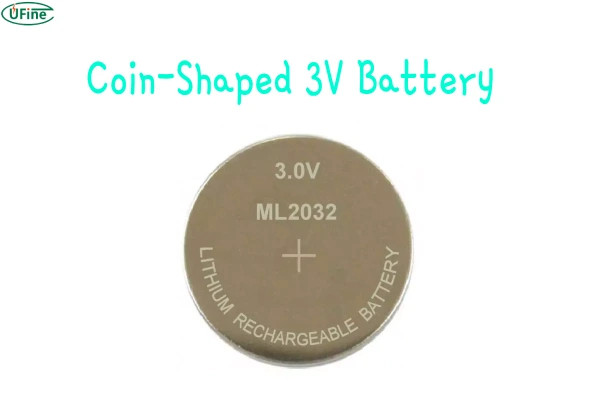
A 3 volt battery is a type of primary or rechargeable battery that supplies a steady 3 volts of power. These batteries are typically cylindrical (like the common CR123A) or coin-shaped (such as CR2032) and are compact enough to fit into small devices. The compact design and stable voltage output make them ideal for powering electronics that require low, consistent energy over extended periods.
Primary Battery Vs. Rechargeable Lithium Battery
Their physical dimensions can vary significantly based on the type of battery, but most share a similar voltage output. This makes 3 volt batteries versatile across many devices.
Part 2. Types of 3 volt battery
The chemistry behind 3 volt batteries plays a crucial role in their performance and application. Let’s look at the different types available:
-
Lithium 3 Volt Batteries
Lithium batteries are the most common type when it comes to 3 volt batteries. They offer a long shelf life (up to 10 years in some cases) and perform exceptionally well in both high and low temperatures, making them perfect for outdoor devices like security systems and keyless entry devices. Lithium 3 volt batteries are lightweight and often found in CR2032 and CR123A formats. -
Alkaline 3 Volt Batteries
While not as common, alkaline batteries can also provide 3 volts of power. However, they have a shorter lifespan compared to lithium counterparts and are generally used for devices with lower power requirements. -
Rechargeable 3 Volt Batteries
Rechargeable options, such as lithium-ion (Li-ion) 3 volt batteries, offer the convenience of being recharged multiple times. These are ideal for devices that consume a moderate to high amount of power regularly, such as digital cameras and flashlights.
Part 3. Common 3v batteries
Some of the most widely recognized 3 volt batteries include:
CR2032: Commonly used in watches, fitness trackers, and small electronics, this coin-shaped lithium battery is perhaps the most popular 3 volt battery due to its compact size and versatility.
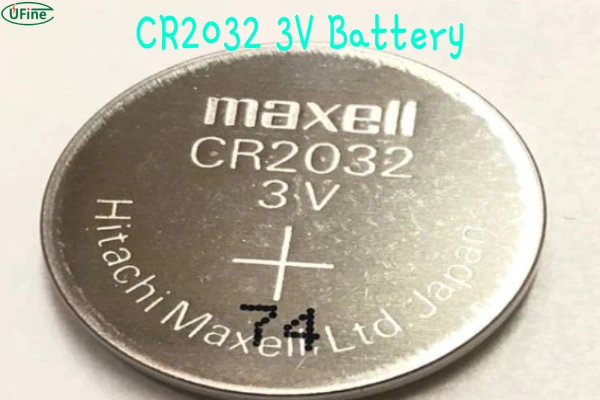
CR123A: Often used in high-drain devices like cameras, LED flashlights, and some security equipment, this cylindrical battery provides long-lasting power for demanding devices.
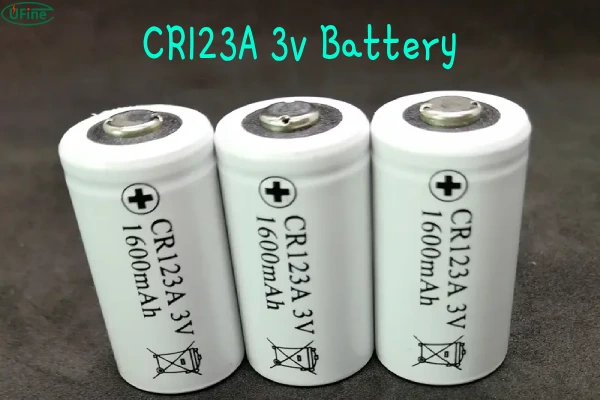
CR2025: Another coin-cell battery, similar to the CR2032, but slightly thinner, making it suitable for devices with limited space like car remotes and medical instruments.
Part 4. Application
The versatility of 3 volt batteries shines through in a wide range of applications. Below are seven common use cases:
-
Car Key Fobs: These batteries provide a reliable and long-lasting power source for keyless entry systems, allowing your car fob to function over months or years without frequent replacements.
-
Watches: From digital to analog, many watches rely on 3 volt coin cells, especially CR2032, to keep time for extended periods.
-
Fitness Trackers: Devices like Fitbit and similar wearables use compact 3 volt batteries to power their monitoring systems.
-
Medical Devices: Devices like glucose monitors or hearing aids often use 3 volt batteries for their reliability and steady power output.
-
Cameras: Digital cameras and high-powered flashes commonly use 3 volt lithium batteries like CR123A, which are ideal for energy-intensive tasks.
-
Toys: Many modern toys and gadgets require 3 volt batteries, especially those with LED lights or sound effects.
-
Smart Home Devices: Motion sensors, smart locks, and remote security systems frequently use 3 volt lithium batteries to maintain constant, reliable power.
Part 5. How long does a 3 volt battery last?
The lifespan of a 3 volt battery depends on its chemistry, the device it powers, and the frequency of use. For example:
-
Lithium CR2032: These can last up to 10 years in low-drain devices like watches or remote controls.
-
CR123A Lithium: These typically last 3 to 5 years, depending on usage, but their capacity to handle high drain devices like flashlights can shorten their lifespan.
In general, lithium batteries are known for their long shelf life, while alkaline options tend to deplete faster. Rechargeable 3 volt batteries can last years but require recharging after use, making them ideal for devices with frequent power needs.
Part 6. Is a 3v battery rechargeable?
Yes, many 3 volt batteries are rechargeable, particularly lithium-ion (Li-ion) variants. Rechargeable 3V batteries offer excellent value for devices that drain power quickly or are used frequently. However, it’s crucial to use the appropriate charger and ensure that the device supports rechargeable options. Otherwise, you might damage both the battery and the device.
Part 7. Is 2 AA batteries equal to a 3 volt battery?
All About AA Rechargeable Batteries
Technically, 2 AA batteries (each providing 1.5V) can be combined in series to provide a total of 3 volts. However, the current output, size, and capacity of two AA batteries are different from a single 3 volt battery. This means that while the voltage is the same, the application may require specific battery types due to size constraints or energy needs.
Part 8. Key parameters to consider when buying a 3 volt battery
When purchasing a 3 volt battery, there are a few critical parameters you need to keep in mind:
-
Capacity: Measured in milliamp-hours (mAh), a higher capacity means the battery can last longer between replacements or recharges. For example, a CR123A typically has a capacity of around 1500mAh, while a CR2032 has a capacity of around 240mAh.
-
Shelf Life: How long the battery can be stored before it loses its charge. Lithium batteries tend to have the longest shelf lives, sometimes up to 10 years.
-
Operating Temperature: This can be critical for devices that are used in extreme conditions, such as outdoor equipment. Lithium batteries tend to perform better across a broader temperature range compared to alkaline or zinc-carbon batteries.
-
Battery Chemistry: Whether you need primary (non-rechargeable) or secondary (rechargeable) batteries depends on your usage. Some devices only work with specific chemistries.
Part 9. Final thoughts
The 3 volt battery is a versatile power source found in many devices, from small electronics to home security systems. Understanding the different types of 3 volt batteries, their lifespan, and the key parameters to consider will help you make informed decisions. Whether you need long-lasting power for a watch or high-drain performance for a camera, choosing the right 3 volt battery ensures reliability and efficiency.
Related Tags:
More Articles

Easy Guide: Picking the Right Garden Tractor Battery.
Confused about your garden tractor battery? Find the right battery & keep your lawn tractor running strong! Read more here.
Learn Deep Cycle Battery Charging
Confused about charging deep cycle batteries? Don't be! Our guide breaks down the process. You'll learn the best ways to charge your battery safely.
Battery Array vs. Single Battery: Which Is Right for Your Energy Needs?
Battery array vs. single battery: Learn how they work, their benefits, and which option best suits your energy needs for performance and cost.
What Is a Battery Array?
A battery array is a group of connected batteries ensuring reliable power. This article covers its types, benefits, and key applications.
Growth Trends in the Flexible Thin Film and Printed Battery Market
The flexible thin film and printed battery market is evolving fast. This article covers its growth, innovations, challenges, and future trends.
